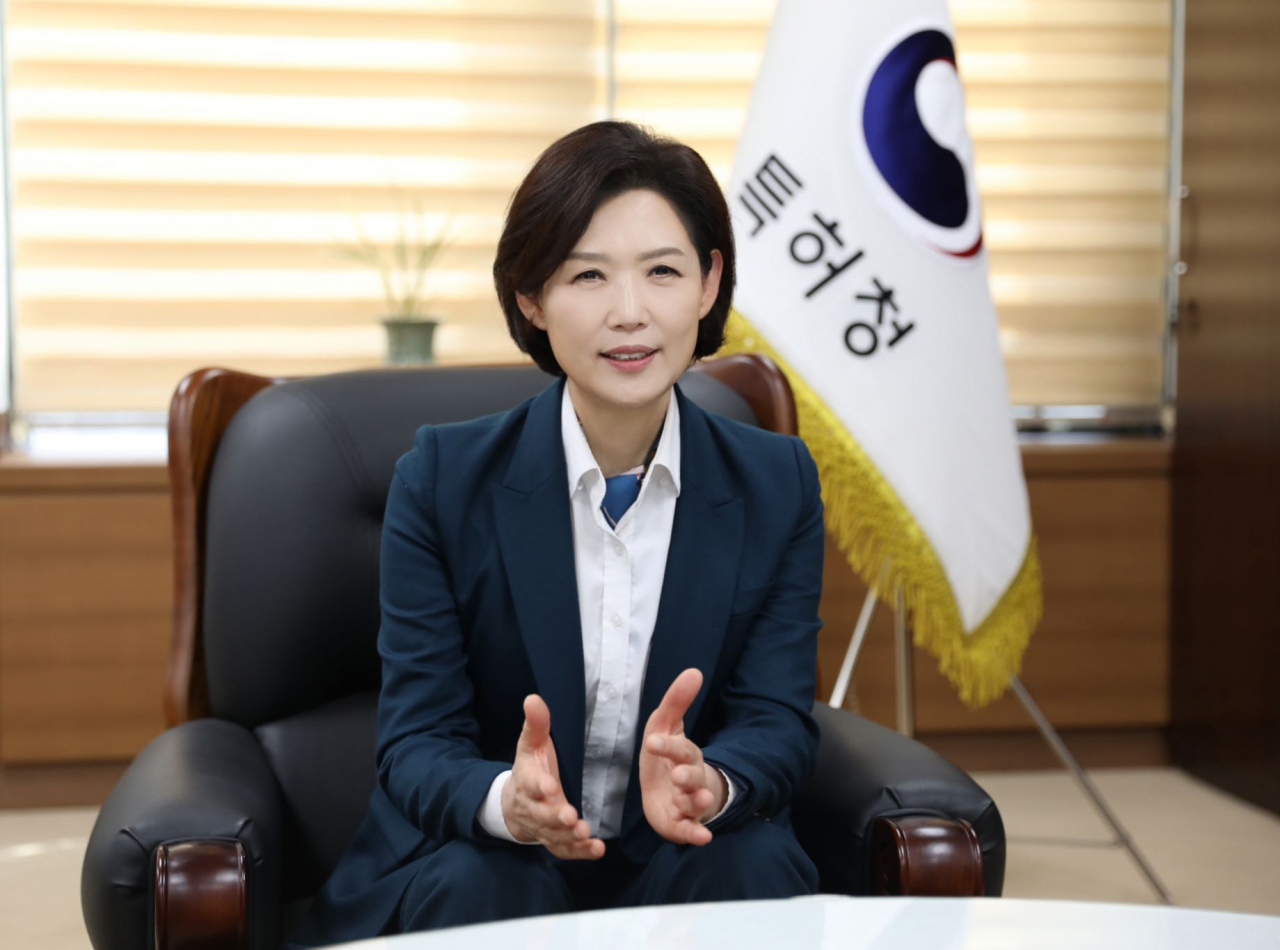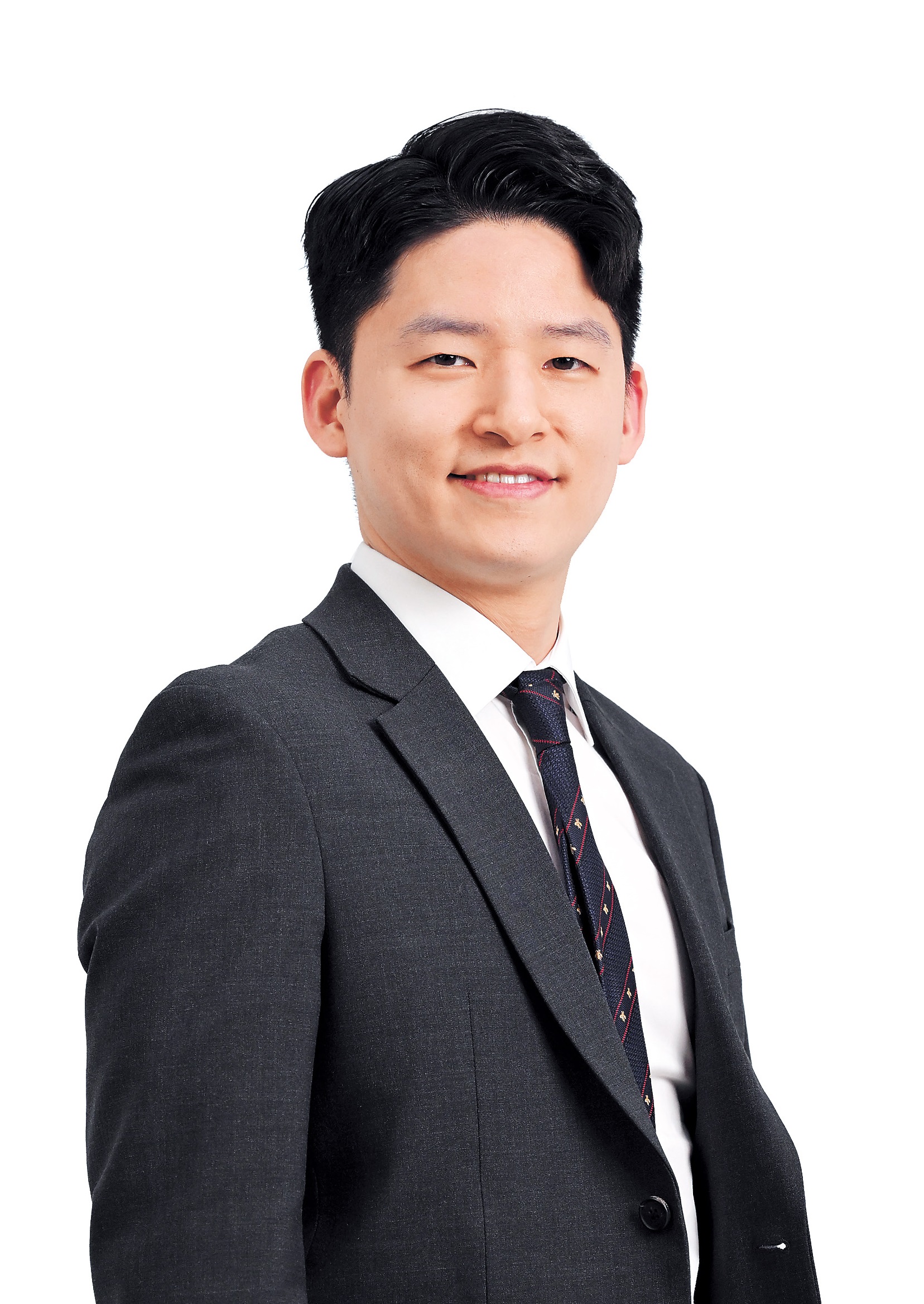[Herald Interview] Korea ramps up high-tech IP protection and leak crackdown
By Moon Joon-hyunPublished : Nov. 28, 2023 - 14:03

The Korean Intellectual Property Office, under the leadership of Commissioner Lee Insil, has been implementing multiple measures to support high-tech industries by speeding up patent processes, particularly in semiconductors and displays, while also tackling technology leakage and enhancing international intellectual property protection.
This follows President Yoon Suk Yeol’s announcement made last month to invest 25 trillion won ($19.2 billion) in 12 key strategic technologies over the next five years, an ongoing national project with two recent additions.
"Our mission is enabling Korean innovation to leap globally. We're expediting protection, honing evaluation rigor, cracking down on infringement and guiding businesses worldwide,” Lee said during an interview with The Korea Herald, as she shared the progress that the agency has made this year to support the government’s vision.
A key initiative is the Packaged Patent Examination Support System for semiconductors launched earlier this year. This dedicated task force of 167 examiners focuses on fast-tracking patent applications in various semiconductor subfields, reducing the examination period to 13.6 months, a reduction of two months from the previous duration.
Earlier this month, the KIPO extended similar expedited patent examination processes to the display sector. Recognizing the surge in global patent disputes and responding to industry requests, the agency has recruited 37 new examiners for this division.
Lee said that the goal is to significantly cut down the examination times in this sector by more than a year, enhancing the efficiency and responsiveness of the patent process.
She mentioned that the KIPO has also leveraged the experience of retired industry experts by hiring them as patent examiners. This strategy has not only ensured high-quality patent examination but has been welcomed by the industry as a safeguard against the outflow of critical semiconductor technology abroad.
"Leveraging veterans pays off. Their expertise and experience enable rigorous, watertight assessments to secure our hard-won technologies," Lee said.
The agency aims to bring on board a total of 67 retired semiconductor examiners by January next year and is also in discussions to increase the number of specialized examiners for secondary batteries by 38, in collaboration with relevant ministries.
Addressing the growing concern of technology leakage, which has seen 93 cases with an estimated loss of 25 trillion won over the past five years, a Joint Response Team for Technology Leakage was formed earlier this month, in collaboration with entities like the Supreme Prosecutors' Office and the National Police Force.
This team will work on revising sentencing guidelines and improving damage calculations for technology theft, leveraging KIPO’s resources, including 530 million patent data and the expertise of its 1,300 patent examiners and judges.
The KIPO has also expanded its existing Intellectual Property Enforcement Unit. This expansion not only involves increasing personnel but also broadening the investigative scope to include all forms of industrial property and technology infringements. Recent actions include the indictment of six employees for attempting to leak semiconductor technology overseas.
As the KIPO looks ahead, it is considering expanding its focus to include other high-tech fields like secondary batteries, a topic discussed at the Korea Battery Industry Association IP Roundtable this June.
To reinforce IP protection on the international front, the KIPO established a channel for IP rights enforcement and a hotline for Korean companies in Indonesia after the Korea-Indonesia Summit in October. This is part of a wider strategy against counterfeit goods, with Korea ranking eighth globally for damages incurred. The KIPO has allocated 6.4 billion won in 2023 and 6.8 billion won in 2024 for overseas K-brand dispute response.
At the forefront of global intellectual property discussions is the upcoming Tri-National Patent Commissioners' Meeting in Busan, involving Korea, Japan and China. The meeting, to be held on Thursday and Friday, will discuss AI inventorship -- attribution of inventorship to an AI system or machine -- and related patent examination standards.
"Our tri-nation alliance has become the dominant force in global innovation. Together we account for over 60 percent of patent filings worldwide -- up from just 40 percent in 2001. As such heavyweights, it is imperative we lead the dialogue around future IP norms," said Lee.
By Moon Joon-hyun and Lee Kwon-hyung
(mjh@heraldcorp.com) (kwonhl@heraldcorp.com)



















